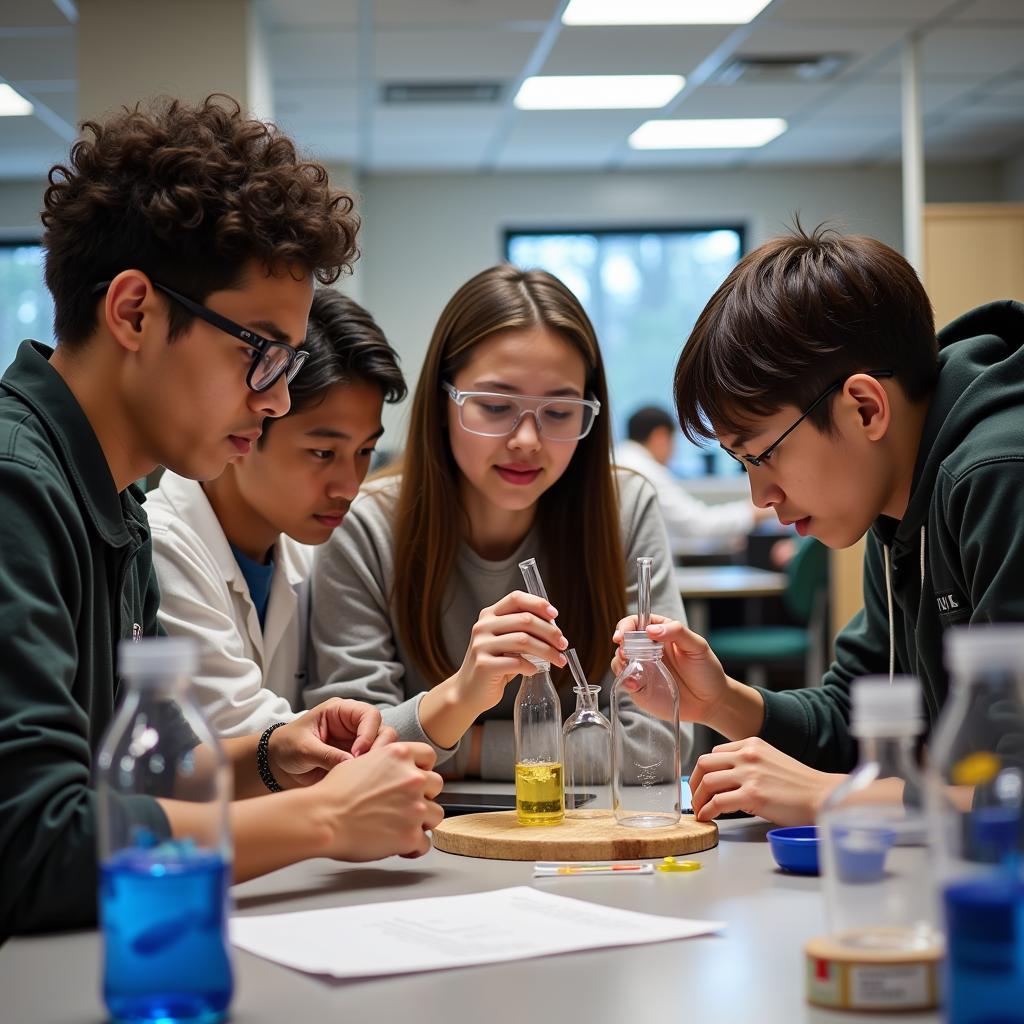Science is the backbone of societal progress, driving innovation, informing decisions, and shaping our understanding of the world around us. From the technology we use daily to the healthcare we rely on, science plays a pivotal role in improving our lives. This article explores the multifaceted importance of science in society, highlighting its impact on various aspects of our existence.
Science: The Engine of Innovation and Technological Advancements
Science is the driving force behind countless technological advancements that have revolutionized our world. Through scientific inquiry and experimentation, we have witnessed the development of groundbreaking technologies, including:
- The Internet and Communication Technologies: The internet, a product of decades of scientific research, has transformed the way we communicate, access information, and conduct business, connecting people globally like never before.
- Medical Breakthroughs: From vaccines and antibiotics to advanced imaging techniques and minimally invasive surgeries, medical science has dramatically increased life expectancy and improved the quality of life for millions worldwide.
- Renewable Energy Sources: As the world faces the challenges of climate change, science is at the forefront of developing sustainable and renewable energy sources, paving the way for a cleaner and greener future.
These examples only scratch the surface of how science fuels innovation. By fostering a culture of curiosity and exploration, we empower future generations to push the boundaries of knowledge and create solutions for the challenges of tomorrow.
Informed Decision-Making: Navigating a Complex World
In an increasingly complex world, science provides the evidence-based foundation for making informed decisions on a wide range of issues, including:
- Public Health: Epidemiological studies and clinical trials guide public health policies, enabling us to combat infectious diseases, promote healthy lifestyles, and develop effective healthcare strategies.
- Environmental Protection: Scientific research helps us understand the impact of human activities on the environment, providing crucial data for developing policies to protect our planet’s delicate ecosystems.
- Economic Growth: Science and technology are key drivers of economic growth. By investing in research and development, we foster innovation, create new industries, and improve the overall standard of living.
“Scientific literacy empowers citizens to engage in meaningful dialogue about critical issues, fostering a society that values evidence and critical thinking,” remarks Dr. Emily Carter, Professor of Innovation and Public Policy at Stanford University.
Fostering Critical Thinking and Problem-Solving Skills
Science is not just about memorizing facts; it’s a way of thinking. The scientific method, with its emphasis on observation, experimentation, and critical analysis, equips individuals with invaluable problem-solving skills applicable to various aspects of life.
By encouraging scientific inquiry from a young age, we cultivate a generation of individuals who are:
- Critical Thinkers: Able to analyze information objectively, identify biases, and form well-founded conclusions.
- Problem Solvers: Equipped with the tools to approach challenges systematically, develop hypotheses, and test solutions.
- Adaptable Learners: Prepared to embrace new information, adapt to changing circumstances, and continuously update their understanding of the world.
 Students Engaging in a Science Experiment
Students Engaging in a Science Experiment
Understanding Our Place in the Universe
Beyond its practical applications, science also satisfies our innate human curiosity about the universe and our place within it. From the vastness of space to the intricacies of the human brain, science unravels the mysteries of existence, fostering a sense of wonder and awe.
Through scientific exploration, we gain:
- A Deeper Understanding of Ourselves: By studying biology, genetics, and neuroscience, we gain insights into the complexities of the human body and mind.
- A Broader Perspective on Our Planet: Earth sciences, such as geology, meteorology, and oceanography, illuminate the interconnectedness of Earth’s systems and the importance of environmental stewardship.
- A Cosmic Awareness: Astronomy and astrophysics expand our horizons, revealing the wonders of the cosmos and inspiring us to ponder fundamental questions about our place in the universe.
The Importance of Science in Building a Peaceful Future
The Society For Peace recognizes the profound role science plays in creating a more peaceful and just world. By fostering international scientific collaboration, we break down barriers between nations, promote understanding, and work together to address global challenges.
Mid American Paleontology Society is an example of a group fostering collaboration and understanding through their work.
Science diplomacy, an emerging field that leverages scientific collaborations to address diplomatic challenges, highlights the interconnectedness of science and peacebuilding. By working together on shared scientific goals, nations can build trust, foster dialogue, and pave the way for a more peaceful and cooperative future.
Conclusion
Science is not merely a subject studied in classrooms; it is an integral part of who we are and how we navigate the complexities of the world. By embracing science, we unlock a future filled with possibilities, innovation, and a deeper understanding of our place in the grand tapestry of the universe. Let us continue to champion scientific inquiry, education, and collaboration, for it is through science that we can create a brighter and more peaceful future for all.
Need support in your journey towards building a more peaceful world? Reach out to us!
- Phone: +842043854663
- Email: [email protected]
- Address: Khu 34, Bắc Giang, 260000, Vietnam
Our dedicated team is available 24/7 to assist you.